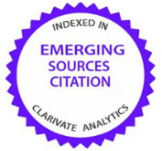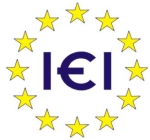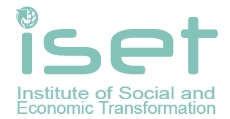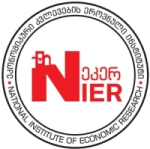The impact of the banking system concentration level and the pandemic on the Georgian banking sector
Abstract
Introduction. The importance of the banking sector is vital for the economic development of any country, since it is the main structural unit of monetary use, which plays the greatest role in the development of the state. As in all markets, we are faced with competition in the banking market, which is characterized by certain specifics, since the main product is money that cannot be replaced by other goods, and the main purpose of competition is to gain an advantage among agents operating in the same market, which is reflected in the final profit. The more the banking market develops and the more diversified the services offered to clients, the more the role of competition in the banking sector increases. The spread of the pandemic not only impeded the development of healthy competition, but also called into question the normal functioning and development of the banking sector.
Aim and tasks. The aim of the study is to determine the level of competition in the Georgian banking sector by the method of identifying total assets and net loans, which aims to identify the causes of the market concentration level and find solutions, as well as to determine and assess the shock effects of the pandemic, because The pandemic period has become an even bigger challenge for the Georgian banking sector, where most of the market players occupy a small volume of the market, the National Bank of Georgia is actively trying to keep up with the challenges, and in order to mitigate the negative impact caused by the pandemic
Results. The results of the study showed the monopoly functioning of the market, which is an obstacle to the development of a competitive market, resulting in unhealthy functioning of the market and the development of a flexible banking system, which ultimately negatively affects the stability of the country's economic development. As for the post-pandemic situation, it has been dealt with quite positively in Georgia, with the management of loan and deposit portfolios successfully managed through a temporary supervisory plan developed by the government, which has not been followed by outflow of funds from banks and loan portfolio mismanagement.
Conclusions. In conclusion, it should be noted that in a highly concentrated market, small banks should be promoted with various legislative benefits, which will lead to competition, it is possible to impose a so-called "Capital tax", which implies high demands on capital, it will allow small banks to develop in a healthy competitive environment. Despite the fact that no bank was disrupted during the virus shock in Georgia, the financial result was so unfavorable, it was damaged, the main reason for which was the provision of possible losses on loans, which amounted to a total of 1.22 billion GEL, the National Bank of Georgia is actively trying to keep up with the challenges.
Keywords:
market concentration, pandemic impact, Herfindahl-Hirschman Index, grace period.References
2. Mosiashvili, V., Lomidze, F., & Koksadze, F. (2009)."Banking. Tbilisi: “Dani” Publishing House, 10-11.
3. Japaridze, L., & Zukakishvili, K. (2019). "Georgian Competition Law". Tbilisi.
4. Asatiani V., & Tsaava G. (2014). "Financial Analysis of Commercial Bank Activities". Tbilisi: “Dani” Publishing House, 16-25.
5. Mosiashvili, V., Chelidze, M., & Khidirbegishvili, N. (2017) Financial Institutions and Markets. Tbilisi: “Dani” Publishing House.
6. Petelava, S. (2007) Competition Theory and Anti-Monopoly Regulation in Georgia. Tbilisi: "Loi" Publishing House.
7. Tsaava, G., & Khantadze, G. (2014). Banking. Tbilisi: “Dani” Publishing House.
8. Kistauri, Sh. (1998). "Great Georgian banker and financier". Tbilisi: “Samtavisi” Publishing House.
9. Development of Georgian bank system (2020) Retrieved from https://forbes.ge/news/ 1674/rogor-viTardeba-qarTuli-sabanko-sistema
10. National Bank of Georgia (2021) Bank organizations licensed in Georgia Retrieved from https://www.nbg.gov.ge/ index.php?m=403
11. National Bank of Georgia (2021) Annual Report of the National Bank Retrieved from https://www.nbg.gov.ge/ index.php?m=672
12. National Bank of Georgia ( 2021) An interim supervision plan of the National Bank Of Georgia Retrieved from https://www.nbg.gov.ge/index.php?m=340&newsid=3901
13. National Bank of Georgia (2021) The amount of PTI (Loan Service Ratio) in Georgia Retrieved from https://www.nbg.gov.ge/index.php?m=340&newsid=3881
14. National Bank of Georgia (2021) Basic Principles of Banking Supervision Retrieved from https://www.nbg.gov.ge/ index.php?m=354
15. TBC Bank (2020). 3-month suspension period on loans. Retrieved from https://www.tbcbank.ge/web/ka/3-month-suspension-period
16. Bank of Georgia (2020). Retrieved from https://bankofgeorgia.ge
17. Legislative Herald of Georgia (2013) Obtained by the Order of the President of the National Bank of Georgia N 100/04 28/10/2013 on the approval of the Regulation on the capital adequacy requirements of commercial banks Retrieved from https://matsne.gov.ge /ka/document/view/2060636?publication=0
18. Tamosiuniene, R., Demianchuk, M., Koval, V. (2019). State Regulation of Bankruptcy Relations in the National Economy. Economics. Ecology. Socium, 3 (4), 19-27
19. Chauvet, L., & Jacolin, L. (2017). Financial inclusion, bank concentration, and firm performance. World Development, 97, 1-13
20. Nazarova, K., Hordopolov, V., Kopotiienko, T., Miniailo, V., Koval, V., & Diachenko, Y. (2019). Audit in the state economic security system. Management Theory and Studies for Rural Business and Infrastructure Development, 41(3), 419-430
21. Beck, T., Demirgüç-Kunt, A., & Levine, R. (2006). Bank concentration, competition, and crises: First results. Journal of banking & finance, 30(5), 1581-1603.
22. Vallascas, F., Mollah, S., & Keasey, K. (2017). Does the impact of board independence on large bank risks change after the global financial crisis?. Journal of Corporate Finance, 44, 149-166
23. Cull, R., Peria, M. S. M., & Verrier, J. (2018). Bank ownership: Trends and implications. The World Bank.
If the article is accepted for publication in the journal «Economics. Ecology. Socium» the author must sign an agreementon transfer of copyright. The agreement is sent to the postal (original) or e-mail address (scanned copy) of the journal editions.





















